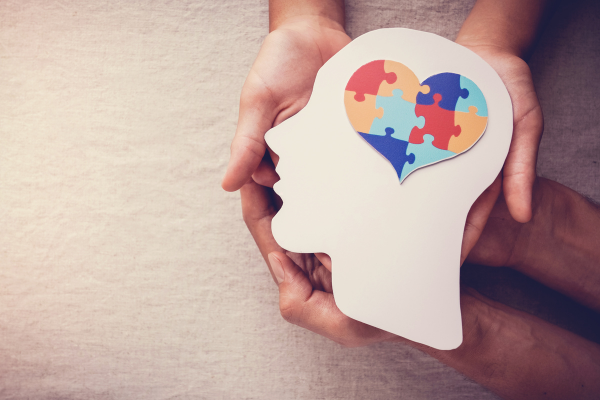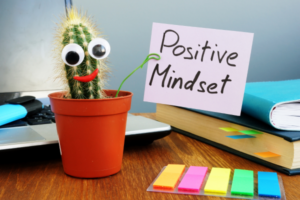Introduction
Mental health is a crucial aspect of overall wellbeing, yet it often gets overlooked. In the bustling rhythm of modern life, mental health issues are becoming increasingly common. This article aims to shed light on the powerful role mindfulness can play in boosting resilience and enhancing mental health. By practicing mindfulness, we can cultivate a stronger, healthier mindset that can better cope with life’s challenges.
1. Mindfulness and Stress Reduction
Stress has become an all too common part of our lives. It not only impacts our physical health but also takes a toll on our mental wellbeing. Mindfulness, the practice of being present in the moment without judgment, offers an effective way to manage stress.
By practicing mindfulness, we can learn to slow down and respond to stressors more thoughtfully rather than reacting impulsively. This helps reduce the intensity of our stress responses and encourages a more peaceful state of mind.
Furthermore, mindfulness encourages us to accept our feelings and experiences rather than resist them, reducing the additional stress that comes from wanting things to be different. Regular mindfulness practice can, therefore, serve as a powerful tool in stress reduction, promoting a calmer, more balanced mental state.
2. Mindfulness and Anxiety
Anxiety is characterized by excessive and persistent worrying about everyday situations. It’s not uncommon for these feelings to become so overwhelming that they interfere with daily life. Mindfulness, with its emphasis on accepting and observing experiences without judgment, offers a way to deal with anxiety.
Mindfulness encourages us to stay present, focusing on the moment rather than worrying about the future. This can help reduce the constant cycle of worry that fuels anxiety.
Moreover, by practicing mindfulness, we cultivate a kinder relationship with ourselves. We learn to meet our anxious feelings with compassion and understanding, thereby reducing the power they hold over us.
3. Mindfulness and Depression
Depression, a common mental health disorder, is characterized by persistent feelings of sadness, hopelessness, and a lack of interest or pleasure in activities. It’s here that mindfulness can play a significant role in alleviating depressive symptoms.
Mindfulness helps us to break away from negative thought patterns that fuel depression. It teaches us to observe our thoughts and feelings without judgment, breaking the cycle of rumination that often characterizes depression.
Furthermore, mindfulness strengthens our ability to focus on the present moment, diverting attention from past regrets or future worries. This shift in focus can help alleviate the symptoms of depression, fostering a healthier mental state.
4. Mindfulness and Emotional Resilience
Emotional resilience refers to one’s ability to adapt to stressful situations or crises. It’s our ability to ‘bounce back’ from adversity. Mindfulness, by promoting awareness of our thoughts and feelings, can significantly boost emotional resilience.
Mindfulness teaches us to view our feelings and thoughts as temporary and changing, not definitive truths about reality. This perspective can help us cope with negative experiences more effectively and recover from them more quickly.
Additionally, by promoting acceptance of our present-moment experience, mindfulness can help us face difficulties with courage and patience. This acceptance can prevent us from getting stuck in negative experiences, bolstering our emotional resilience.
5. Mindfulness and Self-Esteem
Self-esteem is the regard or respect that a person has for oneself. A healthy level of self-esteem is essential for mental wellbeing. Practicing mindfulness can significantly enhance self-esteem.
Mindfulness encourages acceptance and non-judgment, which extends to how we view ourselves. By practicing mindfulness, we can learn to notice self-critical thoughts without believing them or letting them dictate our actions.
Furthermore, mindfulness can help us tune into our real selves, allowing us to appreciate ourselves as we are, without the need for external validation. This fosters a healthier, more compassionate relationship with ourselves, boosting self-esteem and overall mental wellbeing.
6. Mindfulness and Attention Deficit Hyperactivity Disorder (ADHD)
ADHD is characterized by symptoms of inattention, hyperactivity, and impulsivity. While typically diagnosed in childhood, ADHD can continue into adulthood and cause significant disruptions in daily life. Mindfulness has shown promise as an effective approach for managing ADHD symptoms.
Mindfulness practices can help improve attention and focus, skills often compromised in individuals with ADHD. By gently and non-judgmentally returning focus to the breath or another anchor point, mindfulness helps train the mind to maintain focus, despite distractions.
Moreover, mindfulness encourages acceptance and patience, reducing frustration and impulsivity common in ADHD. The practice helps individuals respond to their experiences thoughtfully, rather than react impulsively.
7. Mindfulness and Post-Traumatic Stress Disorder (PTSD)
PTSD is a mental health condition triggered by a traumatic event, resulting in symptoms like flashbacks, nightmares, and severe anxiety. Mindfulness can play a significant role in managing PTSD symptoms and boosting mental resilience.
Mindfulness can help individuals with PTSD learn to tolerate and decrease their reactions to traumatic memories. By fostering a non-judgmental awareness of the present moment, mindfulness can help reduce the power of traumatic triggers.
Additionally, mindfulness cultivates acceptance and compassion, key factors in the healing process. By teaching us to meet ourselves where we are, without judgment, mindfulness can help facilitate healing and recovery from trauma.
Conclusion
In the face of adversity, mindfulness can be a vital tool in boosting mental resilience and improving mental health. It fosters a greater awareness of our thoughts and emotions, allowing us to navigate life’s challenges with increased calm and clarity. The journey to better mental health is a personal one, and mindfulness, with its inherent flexibility and adaptability, can offer a tailor-made path towards resilience and wellbeing. By harnessing the power of mindfulness, we can equip ourselves with the tools to manage stress, reduce anxiety, navigate depression, and ultimately, cultivate a healthier, more resilient mind.



